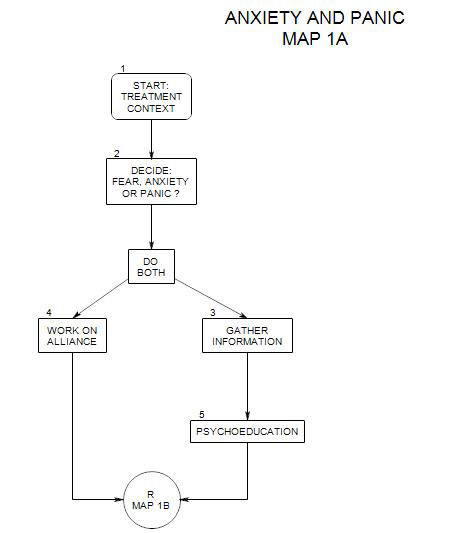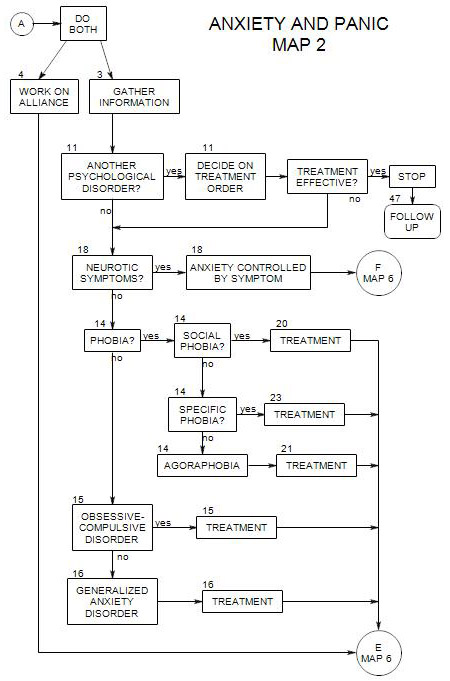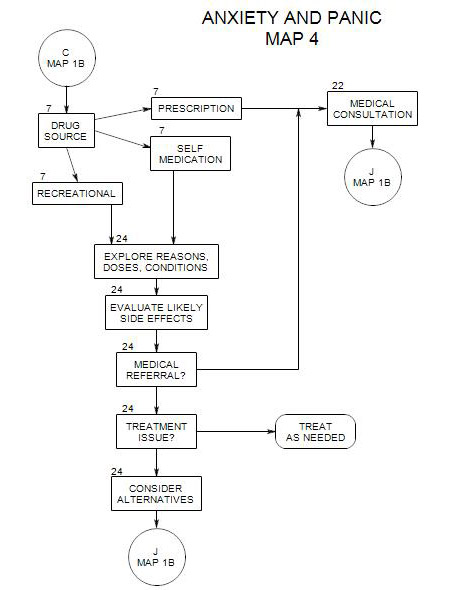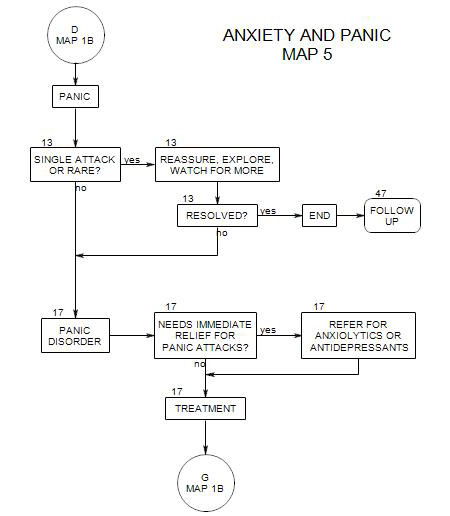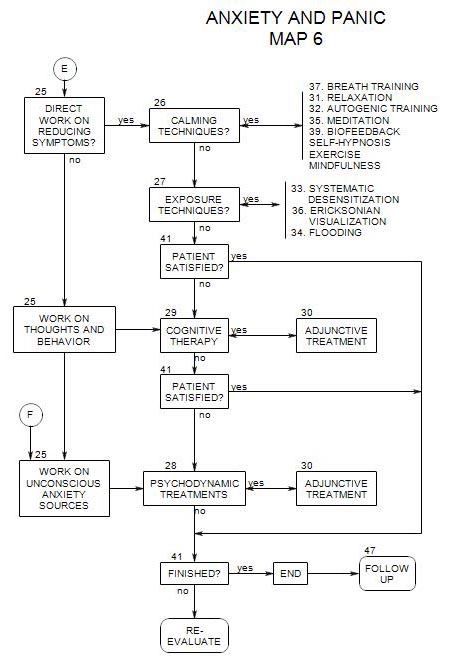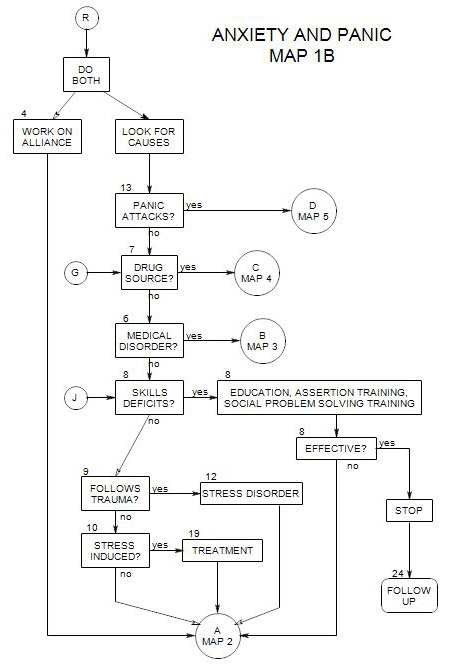
SECTIONS: 4 | 6 | 7 | 8 | 9 | 10 | 12 | 13 | 19 | 24
- These issues apply throughout treatment.
See Also: New Patient: Section 10, Section 11
4a. Deal With Trust Issues
Anxious patients are often motivated to reduce their anxiety, but at the same time may have difficulty trusting others, being known or being humiliated.
Often they have histories of betrayal, empathic failures, mistreatment, difficulties with attachment, ostracism, etc. [Wolfe, 2005, p. 269]
Part of the therapist’s job is to demonstrate trustworthiness, to work on the person’s defenses against trusting anyone, to allow the person to engage fully in the treatment process.
4b. Gather Information
One way to approach the therapeutic task is to consider it a collaboration of two experts; a therapist with general knowledge of treatment and a patient with specific knowledge of his/her own life, history, reactions, etc. [See Section 3 ]. Part of what the patient brings are his/her goals for therapy. These need to be elicited and made explicit, if possible.
4c. Match the Person’s Use of Language
Another aspect is in using language with which the person feels comfortable. Bandler and Grinder (1975) have emphasized this aspect of treatment.
4d. Understand the Person’s Theories About His/Her Anxiety
Part of the issue can be worked on by learning the patient’s assumptions and convictions about his/her anxiety and being careful to provide explanations and treatment plans that are compatible with his/her beliefs. Tuschen and Feigenbaum (1997, pp. 34-35) suggest four issues to keep in mind:
- Your approach should be compatible with the patient’s way of thinking and beliefs.
- It should be plausible.
- It should seem appropriate for effecting change.
- It should not be easily discredited by early minor failures.
This is especially true if you are planning to make some of his/her assumptions untenable as an aspect of the treatment [for example, the assumption that some feared objects or situations must always be avoided because of the anxiety experienced in their presence.]
